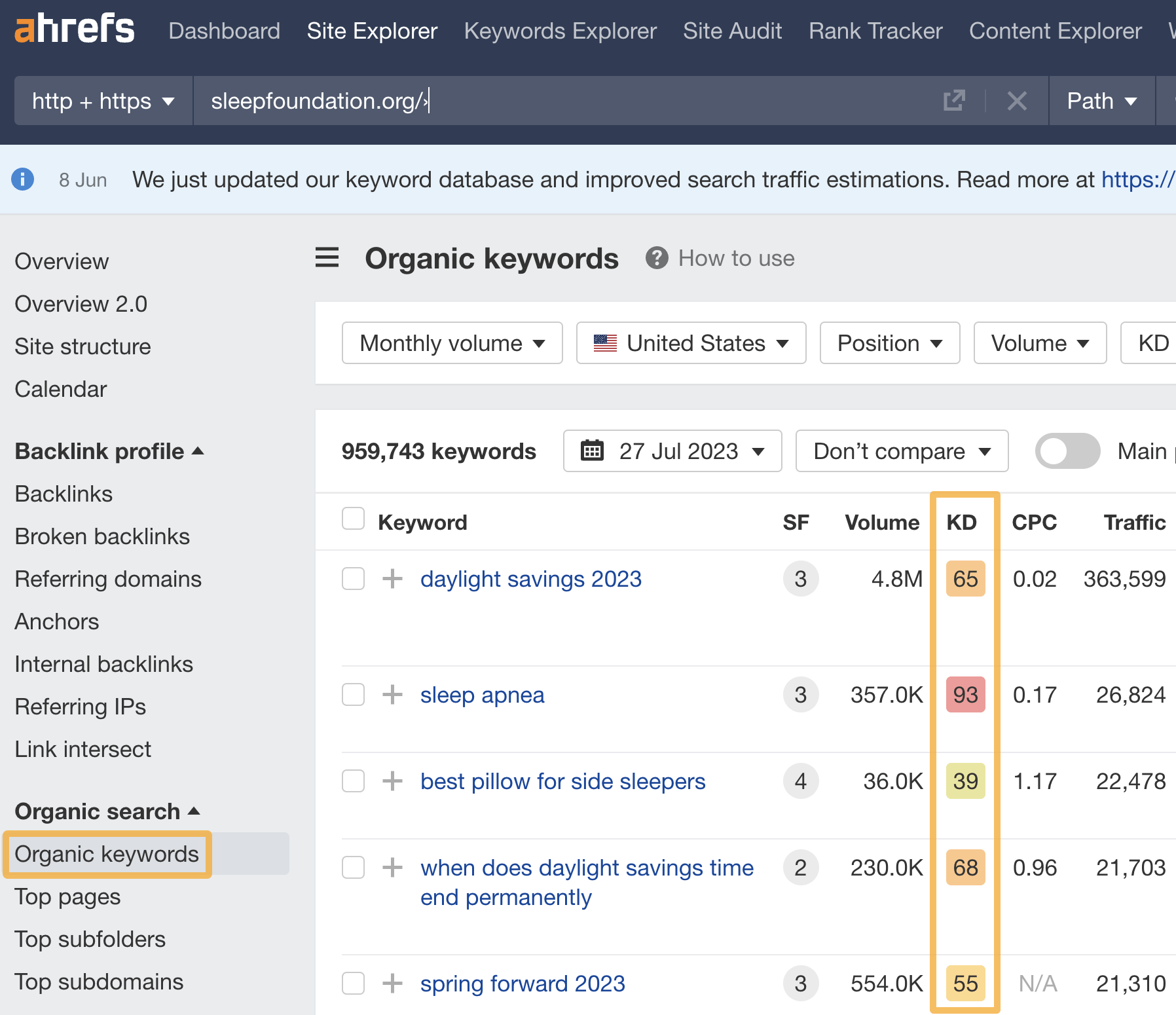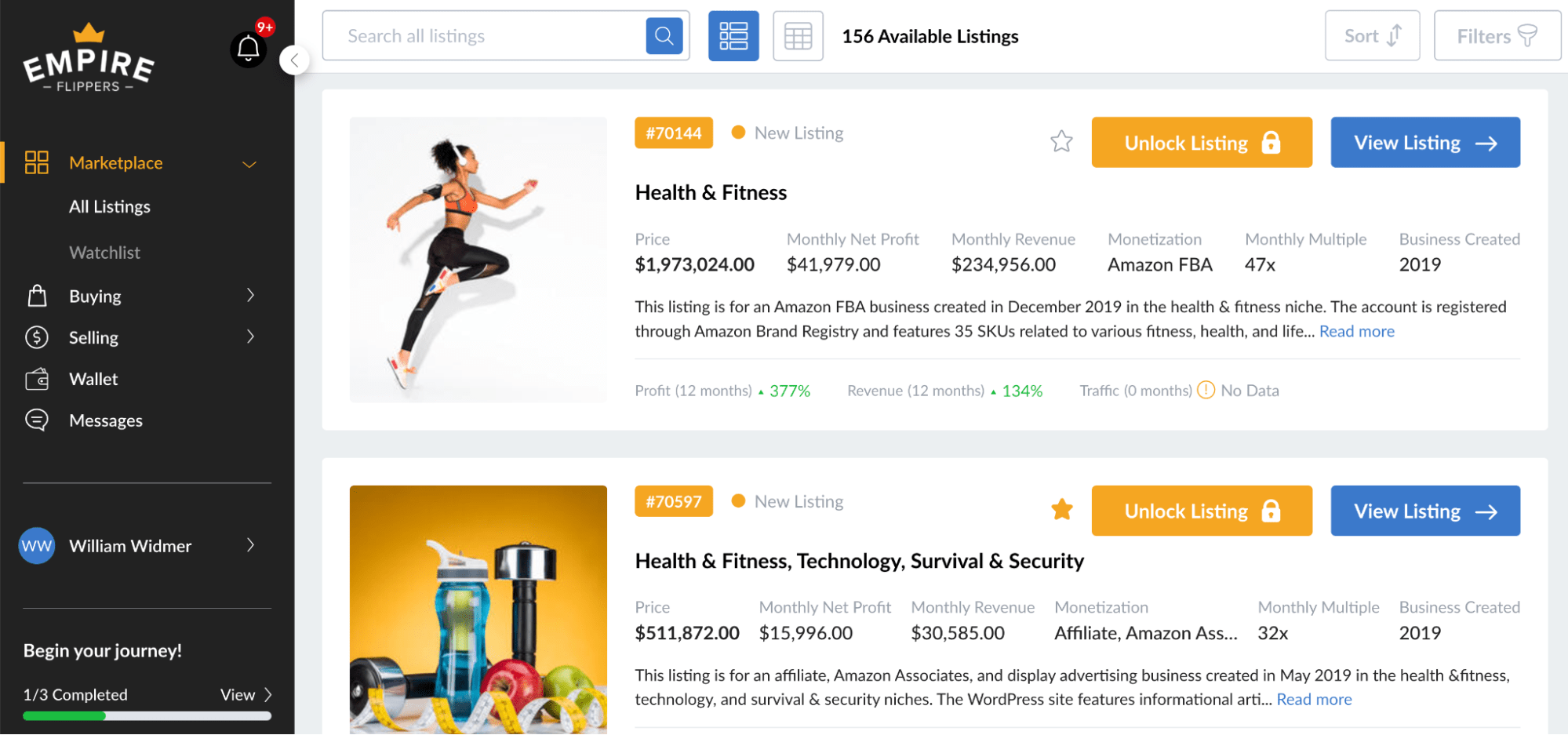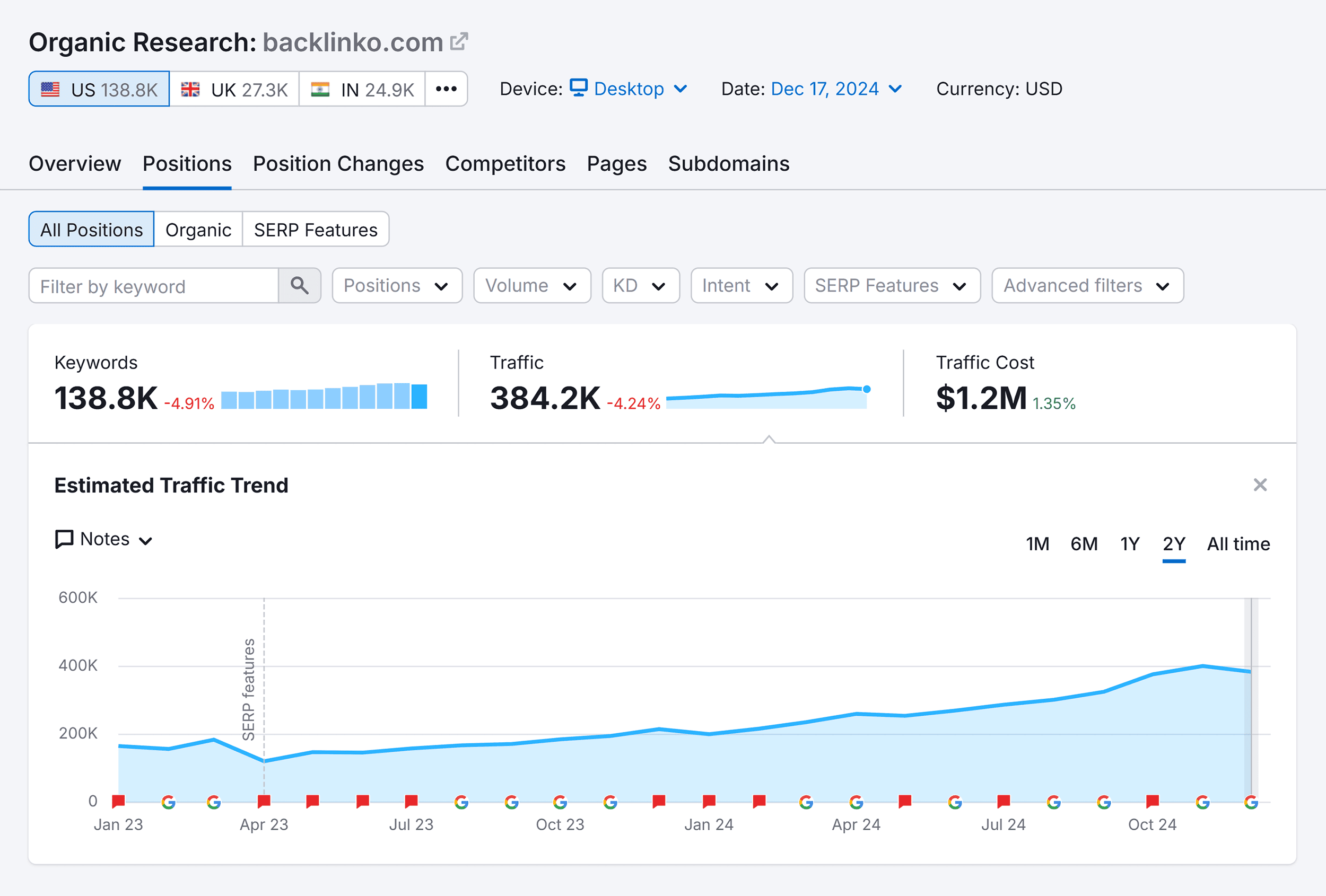If you’ve tried the exercises above and still can’t find a niche, don’t worry.
I wrote a guide to the best niches for affiliate marketing where I researched dozens of niches to find 10 that I think are not oversaturated and have a high potential for income. We also have a list of niche site ideas with other possibilities.
Here are some niches we found that you might be interested in:
- Vacuum cleaners
- Hotels with jacuzzis
- Ebikes
- Golf
- Home gym equipment
- Guitars
- Woodworking
- Zero waste
- Car audio equipment
- DIY gardening
Once you’ve found a possible niche, it’s a good idea to vet the niche to make sure it’s something you can succeed in before you commit to it.
Here’s how to do that:
Research traffic sources and competition
In this stage, your goal is to see:
- How much traffic your competitors get and where that traffic comes from.
- How difficult it may be to rank highly for keywords on Google in that niche.
- How much money they spend on ads.
In doing this, you’ll see how much money you may have to spend to compete in that niche and where you may go to get your traffic.
Let’s start by finding a competitor and entering their website into Similarweb to see how much traffic they get and where it comes from.
First, Google a keyword your competitors may rank for, such as “best bed frames,” if you’re in the sleep niche. Look for a competitor that is specifically about your niche—not a generic, broad competitor.
For example, in these results, I would skip giant sites like Forbes and WSJ and, instead, look at Sleep Foundation:

Looking at Similarweb, we can see it receives over 6.7 million monthly site visits.

If you scroll down, you can see that the majority of this traffic comes from organic search:

Repeat this process for several competitors to get an idea of where the majority of traffic comes from in your niche.
If you find that many of your competitors are using search engine optimization to get traffic from Google, the next step is to see how difficult it may be to rank your own site for similar keywords.
To do that, plug one of your competitor’s sites into Ahrefs’ Site Explorer. Head to the Organic keywords tab and browse the keywords it ranks for, paying special attention to Keyword Difficulty (KD).

If you find that the majority of keywords in this report have a KD greater than 30, that means it will be difficult for you to compete as a new site. That’s not to say you can’t compete—just know that it may not be easy.
In this instance, the majority of the keywords Sleep Foundation ranks for are above 30 and, thus, may indicate a tough niche to compete in. However, I suggest you do further keyword research before ruling a competitive niche out entirely.
Now, we have one more thing to check: ad spend in Google Search.
To see your competitors’ ad spend, go to the “Overview 2.0” page in Site Explorer. Sleep Foundation didn’t have any data here, so let’s look at another competitor: Sleepopolis.

We can see that it purchased 55 ads targeting 63 keywords, which cost ~USD 17K and got it 3.9K monthly visitors. Keep in mind that these numbers are estimates and may not be 100% accurate—however, they can still be used for a rough idea of your competitors’ ad spend.
Check several sites to get a more accurate picture of average ad spend among competitors.
Look at seasonality and trendiness
If you’ve done the research and found a niche still worth pursuing, there are a few more things I recommend you check before buying a domain name and starting your new business.
You should figure out if the niche you chose is seasonal (i.e., snowboarding) or if it’s a passing trend (i.e., fidget spinners).
Seasonality and trendiness are easy to check. Just plug one of the niche’s main keywords into Google Trends to see if searches decrease at certain times of the year and if your niche is a dying or dead trend.
If we look at “fidget spinner” and set the filter to “2004–present,” we can see it’s obviously a dead trend that peaked in 2017:

Looking at “snowboarding,” we can see that its searches peak every December, signaling seasonality:

Just because a niche is seasonal or trendy doesn’t mean it’s a bad niche. However, it is something you should be aware of and take into consideration before making a decision.
After all, this is (hopefully) a business you will be working on for years to come, and you don’t want to find out you built a whole business on a dying trend.
By this point, you should have found at least one potential niche. But if you’re torn between a few, how do you actually pick?
There are three things to think about when selecting your niche:
1. Passion vs. profit
Should you choose a niche that is exciting to you, or should you focus on one that has the highest profit potential?
Personally, I am not “money motivated.” I’ve been fortunate to make quite a bit of money in my career, but I didn’t choose my business niches based on how much money I could make.
However, I did choose my niches based on things I was excited and curious about. After all, if I’m not excited about something, it’s hard to get myself to do it.
Are you fine with boring, uninteresting work if the money is right? Or do you prefer to wake up excited to work and figure out how to make more money in a potentially less lucrative niche?
The choice is ultimately up to you.
2. Low vs. high competition
Many business experts will tell you to avoid high-competition niches unless you have a lot of capital and/or expertise in that market.
While generally I agree with this, I do believe that there is always space for exceptional businesses in every niche—even those that are highly saturated.
High competition typically also means high potential for profits. And if you’re a fiercely competitive and motivated person, you can compete well in virtually any niche.
That said, a low-competition niche will be easier to win in—though at the potential cost of not earning as much money. You need to figure out whether you’re willing to put in the work for a competitive niche, or if you want something a little easier.
3. Micro vs. broad
Similar to the last argument, many experts will say it’s better to go after smaller niches to avoid competition and become more specialized.
Again, however, there’s a trade-off here; smaller niches often require much more creativity to earn the same money you could make in a larger niche. Of course, that also depends on the niche—some small niches have people with deep pockets and can be really lucrative.
Like every other argument here, it really depends on the niche. My advice would be to choose the niche that feels right to you (and looks good on paper).
Final thoughts
Choosing a niche for your online business is a matter of some basic research and thoughtful considerations.
Ultimately, you have to decide for yourself if a niche is worth pursuing and whether you’ll go purely after profits or if you prefer something that’s actually interesting to you.
As for me, I’ll choose an exciting niche over a boring but profitable one every time.
Questions? Comments? Ping me on Twitter.



